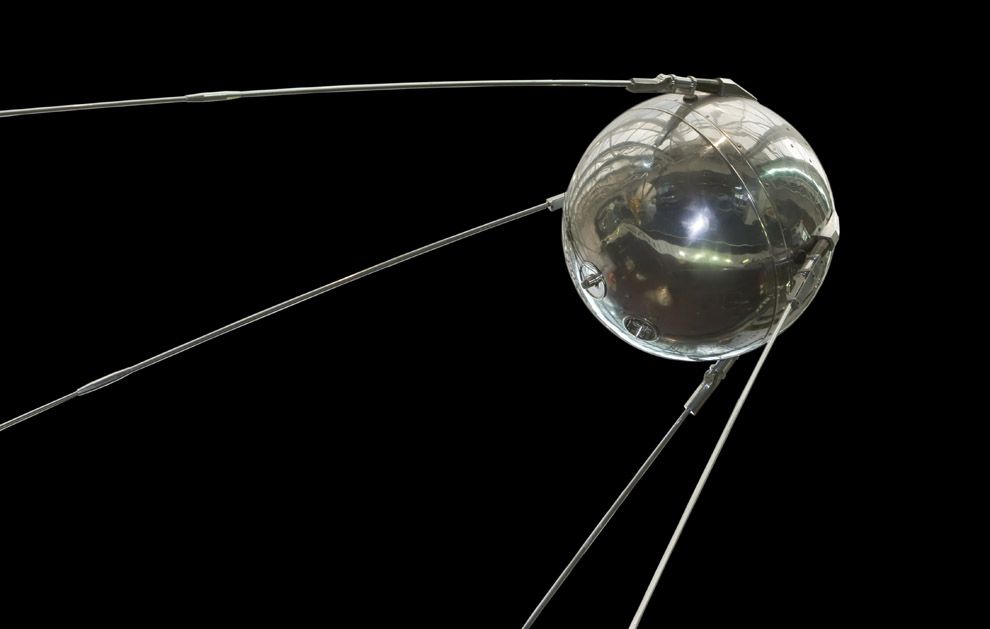I couldn't even hack stalin's explanation rip 😢
I'm gonna hope that Cunningham's law gets a better answer/correction if this one is in any way off:
-
Things exist as opposites (hot/cold, night/day, etc.)
-
There's a push and pull between these opposites and they can be said to exist in contradiction with each other
-
Things go through states of change (night turns to day, day turns to night)
-
Resolving these sort of contradictions in social systems (rich/poor, etc.) can involve sort of "leveling them out" through a process of enforced change; the worker, who may be separated out from the "intellectual" in the prior system, becomes educated and the "intellectual" becomes a laborer (the gap between the two becomes narrower); the community leader who was before divorced from the political process becomes a representative not through campaigning but because their community selects them out and wants them to represent them; the worker who before had to rent (at best) access to the means of production (land, factories) gets shared, collective ownership of it.
-
There must be a developed process of change: For example, if China were to today declare that it is now a stateless, classless, moneyless society and dissolve the state, what is likely to happen? The inertia and state apparatuses and social systems in place would likely continue as they are and replace the leadership who said such with new leadership who adheres to the current system. Were they to declare this and try to enforce it, such as by punishing people for exchanging goods and services via money, they would be contradicting the stateless part and generally losing sight of process in favor of blind adherence to a vague concept. Without a process of change to develop toward things, it's little more than an aspirational declaration of intent. Like Michael Scott from The Office "declaring bankruptcy"; filing for bankruptcy is an enforced and designed process that functions a certain way in the context of a specific society. Declaring it literally doesn't get you anywhere.
-
Other example: You are in a dark room, so you flip the light switch. The switch is connected to wires, which (through complex processes I don't understand well enough to explain) electricity gets created and a light bulb is powered. But, the light doesn't turn on. This can mean a number of things: the power as a whole is out; something is wrong with the wiring (in which case, you need an electrician); or the more common, the bulb doesn't work anymore. You turn the light switch off so you don't get zapped while replacing the bulb, remove the old one, and try putting the new one in. You flip the light switch on. Light floods the room. This enables you to see in the dark, so now you can study for that exam you have even though it's 2am. Where before you were limited to studying with the sun, you can now do it at night. This expands the range of things you can do, regardless of time of day, but also can mess with your circadian rhythms, making your sleep worse. The more you drill this stuff down, the more you get into how things push and pull with each other, and how humans and communities and societies effect change and are affected by change.
(This ended up being a big thing when I meant for it to be a small summary, but I'm gonna roll with it and hope it helps for discussion, if nothing else lol.)
-
The example that helped things start to click for me was the relationship between poverty and charity. At first glance they feel like opposites, poverty is a lack in essential needs, charity is an concentration of those essentials, distributed to those without.
But once you think about it some more, the only reason there is poverty is because some people have hoarded enough resources that they can dole them out as charity. Charity can only exist if poverty does, and poverty can only exist if the conditions for charity exist. Each contains the seed of the other within it, and they push and pull on each other. The more poverty there is, the more need for charity there is. The more charity exists, the more poverty that there must be. This is a dialectical relationship.
https://en.prolewiki.org/wiki/Library:Elementary_principles_of_philosophy the audiobook linked on the page actually follows a slightly better translation imo that we've yet to incorporate. It flows better imo
There are many ways of modelling the same thing. Imagine you have a limited amount of money to fence in your yard.
An economist would say “you have a budget”. A cyberneticist or a linear programmer would say “you have a potentially binding constraint on your objective function”. A marxist might say “there is a contradiction between the size of your enclosure and the amount of fence you can buy”. A normal person would say “well there’s a tradeoff. I can fence in my whole yard or I can spend my money to go drinking on the weekends.”
All of these basically say the same thing. Marxists like to use dialectics which is a philosophical idea originally from idealist philosophers. When brought into the realm of materialist philosophy it gets called dialectical materialism.
Materialist philosophy is the idea that ultimately everything is matter and energy. Nowadays this gets called Physicalism sometimes. Idealist philosophy says that there are things which do exist but which are not material or energy. Ideas, gods, angels, conciousness, etc. Most people have a combination of these two ideas and so would accurately be called “Dualist” but internet leftists tend to use the term “Idealist”.
The simplest way to understand a “dialectic” is, I think, the following: At the start of the industrial revolution in England there were the old lords and a new wealthy business class. There was a conflict between them over the limited resources. There are only so many people to control, luxury goods to purchase, government positions to hold, etc. And these people have different interests. So a Marxist would say, when speaking in terms of dialectics, that “there is a contradiction between the aristocracy (landowners) and the bourgeoisie (business owners, capitalists)”.
Now obviously the relative strength of either side in this conflict can change. Maybe the business class start organizing and take more seats in parliament, maybe the lords begin raising their own knights and armies again, etc. A marxist would say that this change is actually not unusual but a key part of the system. They say that modelling things using dialectics and materialist philosophy means we can understand how things change and not be so surprised when they do. And when something does change they might say “the dialectic is in motion” or “the contradictions are sharpening”.
Ultimately the entire thing is fancy language from the 1800s that should probably be replaced because it’s alienating and bad for propaganda. “Conflict”, “tradeoff”, and “change” are much more sensible in 21st century English than “contradiction”, “dialectic”, and “motion”.
Dialectic has perfectly nice non-nerd “dialogue” word, or “negotiation” which fits more closely.
And materialism of marxism lies in more that society development (laws customs whatevs) is driven materially (by actually existing physical world), guided by how production is set-up, and not by the gheist of the nation/progress towards justice/gods plan/technology level (although this part is more fuzzy due to direct connection to forms of production).
Materialism isn't just "where everything is matter or energy". That's reductionist. Idealists can agree that things are composed of matter or energy, the same as materialists. The idea of a conscious mind isn't inherently idealist either, as things which are intangible can still be material. Marxists do not deny the existence of a consciousness, instead they acknowledge its existence. The difference between materialism and idealism is how our consciousness interacts with the world. Materialists argue that it is not consciousness that dictates reality, but reality that dictates consciousness. In other words, there can exist things which are independent of our consciousness. Idealists argue the former, stating that consciousness dictates reality. It's the reason why gods or angels exist within the idealist mind. Idealists believe in the existence of an angel, although it is a product of our minds, and does not exist within reality. Also combining "ideas" with "idealism" supposes that Marxism is also idealist. Science is idealist. Ideas are not inherently idealist, the concept of idea is the formation of our mind, but these ideas can also have some application with reality. Marxism is a set of ideas, it is based on science, which Marxists observe the political economy and form ideas which align with reality.
Your first paragraph doesn't align with the 2nd to last paragraph. If Marxism is simply a different view, why must we have different views? What makes Marxism different from a cyberneticist? I read your examples and they show vastly different things. And your 2nd to last paragraph shows that clearly. Marxism is different from an economist, a cyberneticist, because it looks at things in a different view within the application of the political economy, something which an economist or cyberneticist cannot do. Also saying "the contradictions are sharpening" is vague. What contradictions? What application of Marxism are we using here? We are referring to change, but there are several types of change, with negations or quantitative to qualitative transformations. All of this seems to be speaking in absolutism, in isolation from what Marxism is supposed to be.
Also saying this:
Ultimately the entire thing is fancy language from the 1800s that should probably be replaced because it’s alienating and bad for propaganda.
Why? Why is it bad for propaganda? We used these terms for centuries now and now we need to change them? The proposed terms are absolutely vague. "Conflict" does not speak of non-antagonistic contradictions (i.e. Proletariat-Peasantry), "tradeoff" does not speak of what dialectics truly is (It's not always binary, in fact suggesting dialectics is inherently a binary thing is metaphysical). "change" is absolutely vague because of what I said earlier. The term "motion" is always referring to change, a specific type of change. Ultimately dumbing down terminology should be done for beginners, but not for the sake of sacrificing the word itself.
Materialism is a philosophy where ultimately everything is matter and energy. I don't know how you can think otherwise.
Conciousness can exist in a materialist worldview so long as it's a phenomenon of matter and energy.Why have different views? Because there are different, equally valid ways of modelling the same thing. But some are more useful than others. You even highlight this in your next few sentences.
The reason it's bad for propaganda is because no lay person understands what the fuck any of us are talking about when we use this philosophical language and quote long dead men from the 1800s.
You also do not understand what materialist dialectics are. You have a very idealist form of them. But that's fine. It's not worth arguing about. The idea that correct thought is needed for correct action is anti-marxist.
I think materialism involves matter, but it does not mean we can reduce everything to simply matter. That's like saying emotions are just "the product of chemical and hormonal imbalances in our brains", which is ultimately reductionist because these emotions are a method of expression. You put "consciousness" as an example of idealism even though marxists do not deny the existence of a consciousness, and that a consciousness is material thing. Also, do you think a consciousness is a form of materialism or idealism? Because you do not seem to argue either or in this paragraph.
If it is true that an economist, an cyberneticist, and a marxist have equally valid (supposedly) ways of viewing the world, why there exists such a division? Why do economists follow Neoclassical/Keynesian economics while Marxists still follow (and succeed) the classical economists by upholding the Labour Theory of Value? It is clear that there exists different interpretations, and these different interpretations lead to different conclusions because of different premises and methods.
In the context of marxism, where we fold out materialistic dialectics for lay people to understand, sure, I can understand dumbing down terminology to the layperson so that they can fulfill a better understanding of dialectics. This does not mean we must scrap the entire term all together. Also you did not put any counterpoints to what I said. The meanings of words under Marxism do not correlate with the common meaning, or even meanings under other fields of the natural sciences.
If it is not worth arguing about my interpretation of diamat, then why bring it up to begin with? What is supposedly the issue with my dialectics? What am I being an idealist for? A consciousness existing that is material? That ideas while intangible can also be material given the right circumstances (i.e. Science and Marxism). If you don't think it's worth discussing then don't bring it up.
Lastly, correct thought is needed for correct action isn't anti-Marxist. Without any revolutionary theory, there can be no revolutionary movement. If it is true that correct thought isn't needed for correct action, why do we have theory? Why do we need to impose cultural revolutions under socialism? Why do we care about Marxism, at all? It's clear that this "correct" thought while not being overall correct, it is the most correct. And that is what Marxism currently is. It is the most correct form of the social (and likely natural) sciences, because it does not disregard the political economy, and thus makes more accurate predictions as a result.
Umm, consciousness does exist.
For every scientist who has not been led astray by professorial philosophy, as well as for every materialist, sensation is indeed the direct connection between consciousness and the external world; it is the transformation of the energy of external excitation into a state of consciousness. This transformation has been, and is, observed by each of us a million times on every hand. The sophism of idealist philosophy consists in the fact that it regards sensation as being not the connection between consciousness and the external world, but a fence, a wall, separating consciousness from the external world—not an image of the external phenomenon corresponding to the sensation, but as the “sole entity.” lenin from 'materialism and empiriocriticism'.
According to you, if one acknowledge the existence of consciousness, they are an idealist. I may be misunderstanding what you were saying though.
if conciousness is fundamentally a phenomenon of matter and energy then it fits in a materialist worldview.
statin that it's immaterial is not materialist.but thank you for quoting scripture.
but thank you for quoting scripture
https://lemmygrad.ml/post/5618337/5058813
You often accuse others of things you do/are. 📽️
Sorry that was a lazy answer - if you're looking for a simple, easy to understand description honestly Mike Duncan's episode The Three Pillars of Marxism has one of the most concise and simple descriptions that a layperson could understand. You don't have to listen to the whole episode but I think he finished with diamat in the first 15 mins if I remember correctly.
I found a YouTube link in your comment. Here are links to the same video on alternative frontends that protect your privacy:
My read is that:
-
dialectical relates to the tension between opposites. Pick "anything", there's something else in conflict with it, causing it to be, or not to be. This contrasts with a frictionless immutable analysis, where there's no interaction between the "anything" you're analysing and it's surrounding context.
-
historical means that this analysis is applied to historical aspects of society.
-
materialism means that any support on the analysis must be originate in material reality, with as much context as possible. In contrast with idealism, which is kind of moral judgement on what things look like, or should be.
Am I too far off?
-
I roughly understand dialectical materialism to be a view of things being in a constant state of change driven by conflict between opposing forces.
Dialectics:
People very often confused dialections for being all about opposing forces and contradictions. This is not fully accurate.
Hegel's dialectics are more fully described as imminent critique, a method where one takes the internal logic of the object of analysis and takes it to its logical conclusion. This is done without bringing in external content or judgement. The point of this excercise is to show whether or not the object in question can stand on its own merit or not. Contradictions are a result of doing imminent critique. We see the internal forces inside an object that will eventually rip it apart. A contradiction is inherently Unstable (or meta-stable at best). No contradiction in the universe can last forever, not even the orbits of the celestial bodies.
Materialism: when hegel first made his imminent critique, it was about ideas evolving through human history. Marx changed it analysing physical and social systems. Mostly the latter, as science is usually more than sufficient to analyse the dynamics of the former.
More broadly speaking, materialism itself has a rich tradition. For most of history, materialist have had to fight against religion and superstition. Today, materialism's basic premises, that reality exists independently of humans, does not sound like it could possibly be used to justify Communism. This is largely because materialist ideas have spread rapidly through the 20th century, although the associated communist impulse that inevitably goes along with it has been suppressed by propaganda.







